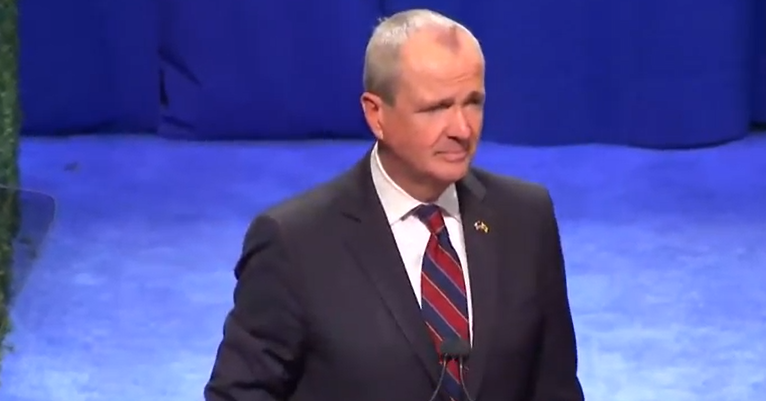The First Act Of Phil Murphy

The full text of Executive Order #1 is below:
WHEREAS, as Governor, I am strongly committed to leading an administration that always adheres to and will act on these values; and
WHEREAS, all New Jerseyans should be compensated based on the nature of the work and services they provide, and must never be subject to different pay because of their gender; and
WHEREAS, studies have demonstrated that women in New Jersey who hold full-time, year-round jobs are paid 82 cents for every dollar paid to men holding full-time, year-round jobs; and
WHEREAS, this wage gap has been demonstrated to exist across all industries and among workers with all levels of education; and
WHEREAS, studies further reveal that Asian-American women are paid 87 cents for every dollar paid to White men, while Black women are paid 58 cents for every dollar paid to White men, and Latina women are paid 43 cents for every dollar paid to White men; and
WHEREAS, the gap between the wages of Latina women and White men in New Jersey is the largest in the nation, and the gap between the wages of Black women and White men is significantly greater than the nation’s average; and
WHEREAS, this discriminatory wage gap results in lost wages exceeding $32 billion every year for New Jersey’s women, hurting their ability to support themselves and their families; and
WHEREAS, asking job applicants about their salary histories inappropriately perpetuates the wage gap by allowing prospective employers to offer lower salaries to women than they otherwise would; and
WHEREAS, California, Massachusetts, Delaware, Oregon, and several U.S. cities, including New York City, Philadelphia, and San Francisco, have all enacted policies that prohibit employers from asking about prospective employees’ salary histories; and
WHEREAS, New Jersey’s state government must set a positive example for other employers to acknowledge and close the gender wage gap by prohibiting inquiry into the salary histories of prospective employees;
NOW, THEREFORE, I, PHILIP D. MURPHY, Governor of the State of New Jersey, by virtue of the authority vested in me by the Constitution and by the Statutes of this State, do hereby ORDER and DIRECT:
1. No State entity shall inquire about a job applicant’s current or previous salaries unless and until the entity has made a conditional offer of employment, including an explanation of the overall compensation package to the applicant.
2. Additionally, no State entity shall make inquiry of a current or prior employer or search public records databases to ascertain an applicant’s current or previous salary. Moreover, a State entity shall take all reasonable measures to avoid inadvertently discovering salary history while gathering other information about the applicant. Any unintentionally discovered information concerning an applicant’s salary history shall not be used by a State entity in any employment decision.
3. Nothing in this Order shall prevent a job applicant from volunteering information about compensation, but an applicant’s refusal to volunteer compensation information shall not be considered in any employment decisions.
4. State entities are authorized to request and verify current or previous compensation information prior to a conditional offer of employment that includes compensation information only if the applicant voluntarily provides such information or if verification is required by federal, state, or local law.
5. In the event that a State entity is already in possession of a job applicant’s compensation information on the effective date of this Order, it shall not use that information in any employment decision unless required to by law or collective bargaining agreement.
6. The Governor’s Office of Employee Relations shall oversee the implementation of this Order and any training of staff at State entities in order to ensure compliance with the Order.
7. Any applicant who is improperly asked about his or her salary history may report the violation to the Governor’s Office of Employee Relations, which shall investigate the allegation and take appropriate remedial measures. This shall be the sole remedy for a violation.
8. Nothing in this Order shall be construed to create a private right of action on behalf of any employee or prospective employee at a State entity, nor shall this Order impair any rights under any collective bargaining agreement or supersede any federal, state, or local law.
9. For purposes of this Order, “State entity” shall mean any of the
`principal departments in the Executive Branch of State government and any agency, authority, board, bureau, commission, division, institution, office, or other instrumentality within or created by any such department, and any independent State authority, commission, instrumentality, or agency over which the Governor exercises executive authority, as determined by the Attorney General.
10. This Order shall take effect on February 1, 2018.
GIVEN, under my hand and seal this 16 day of January, Two Thousand and
Eighteen and of the Independence of the United States the Two Hundred and
Forty-Second.
/s/ Philip D. Murphy
Governor
Attest:
/s/ Matthew J. Platkin
Chief Counsel to the Governor









Leave a Reply